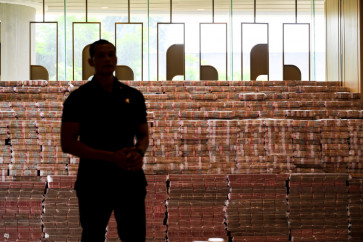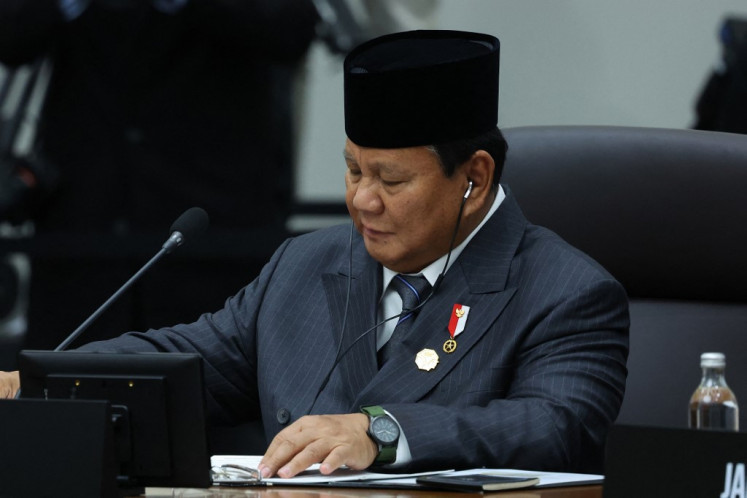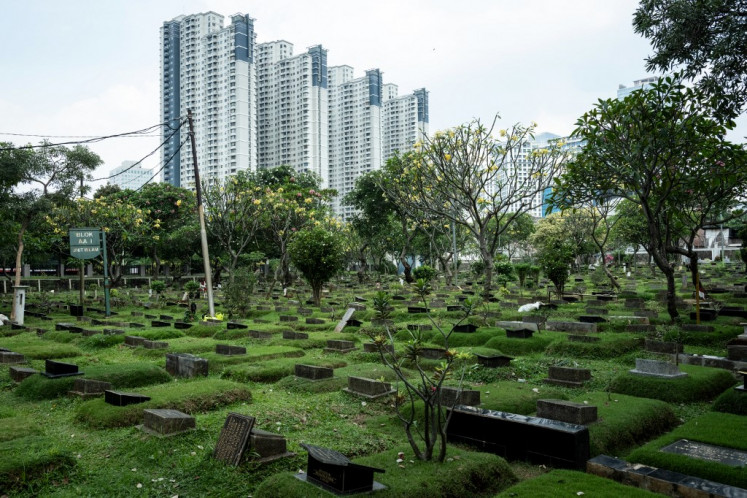Popular Reads
Top Results
Can't find what you're looking for?
View all search resultsPopular Reads
Top Results
Can't find what you're looking for?
View all search resultsGovt may delay electricity price increase plan as protests grow
The government may delay its plan to increase the basic electricity price until an undecided time, Energy and Mineral Resources Minister Jero Wacik says
Change text size
Gift Premium Articles
to Anyone
T
he government may delay its plan to increase the basic electricity price until an undecided time, Energy and Mineral Resources Minister Jero Wacik says.
“It’ll weigh too heavily on the people if we execute both plans to raise subsidized fuel prices and power prices. Moreover, most factions in House of Representatives Commission VII [overseeing energy] seemed to agree with the delay,” he said after a meeting with the commission in Jakarta on Wednesday.
During the meeting, all nine parties in the commission — the Democratic Party, Golkar Party, Indonesian Democratic Party of Struggle (PDI-P), National Awakening Party (PKB), Prosperous Justice Party (PKS), United Development Party (PPP), National Mandate Party (PAN), Great Indonesia Movement Party (Gerindra) and the People’s Conscience Party (Hanura) — rejected the power tariff increase plan this year.
Businesspeople have also teamed up in an effort to oppose the plan.
If the policy would be implemented in the same year as increases in subsidized fuel prices, many industries, predominantly the small- and medium-scale enterprises, would be on the brink of collapsing, Indonesian Employers Association (Apindo) chairman Sofjan Wanandi said on Wednesday.
“The plan [raising electricity prices] has to be delayed until, at least, next year. If it’s executed this year, producers will be forced to increase prices, which will reduce our products’ competitiveness compared to imported goods,” he said.
Among the multiplier effects mentioned by Sofjan was a decline in people’s purchasing ability, which would make the market even tougher for producers.
Yeane Keet of the Electronics Producers Association (Gabel), who also attended the press conference, estimated that the 10 percent increase in electricity prices would drive up costs by 7 percent. That amount would make product prices uncompetitive, she said.
“Uncompetitive prices will lead to a drop in sales, which may force some producers to lay off some of their workers,” she explained.
Putri K. Wardhani of the Cosmetic and Herbal Medicine Association said that costs in the industry would jump by between 10 and 17 percent. Such a jump would make it difficult for Indonesian products to compete with imported products from Thailand and Malaysia, she said.
For the food and beverage industry, increased electricity prices would crank up costs by around 5 percent, said Franky Sibarani of the Food and Beverage Producers Association (Gapmmi). Conditions would be even worse if the price increase was followed by raising tensions in the Hormuz Strait near Iran, which would stimulate oil prices to soar, he added.
In the revised draft of the 2012 state budget, the government has set the electricity subsidy at Rp 89.55 trillion, doubling from Rp 40.45 trillion in the previous budget.
Supply disruptions contributed in part to this massive increase.
A decline in natural gas supply to power plants, which slipped from 372.5 trillion British thermal unit (Btu) to 351.5 trillion Btu, was caused by an 8-month delay in the operation of the floating liquefied natural gas (LNG) terminal in West Java, which was previously projected to begin in January. The operation of several new coal-fired power plants, which could offer an alternative to plants using LNG, has been delayed as well and has dropped coal demand to an estimated 39.37 million tons, far short of the predicted 48.06 million tons.










